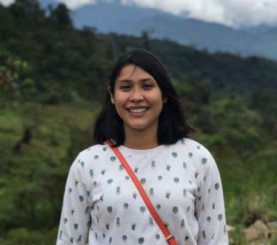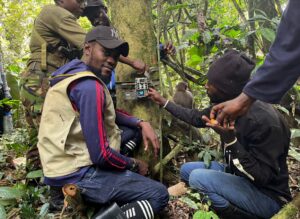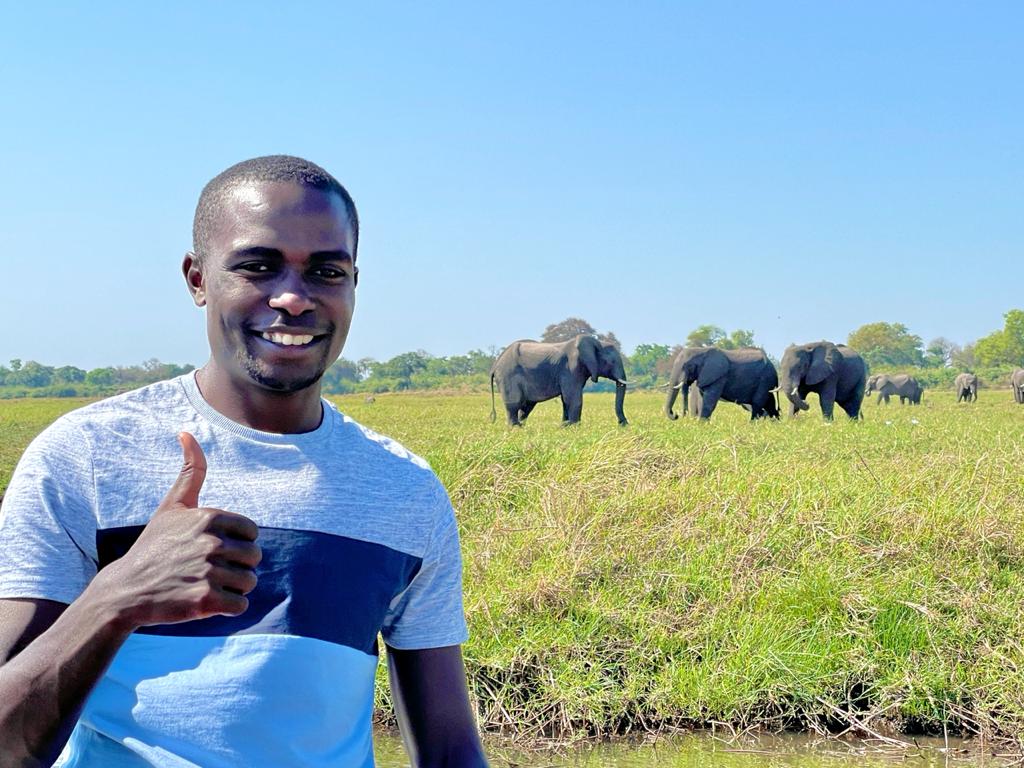This week’s post is by our Director of Field Conservation, Peter Zahler.
I wrote in May of 2023 about our new Zoo New England partnership with the Wildlife Conservation Network (WCN) on their Graduate Scholarship Program. This amazing initiative provides graduate scholarships in both wildlife conservation and wildlife veterinary work to young conservationists in lower income countries around the world.
These young conservationists often have no clear path forward in their careers. Many are from poor rural communities, somehow finding a way to an undergraduate degree in conservation with little more than grit, determination, and a driving passion to protect the wildlife and wild places in their home countries.

Opportunities for advancement from this point forward are usually much more rare than the critically endangered species they are trying to protect and recover. The Graduate Scholarship Program provides these young conservation leaders of tomorrow with just this rare opportunity – to get a Masters or PhD to advance their training and experience. They also get to travel and meet other colleagues from around the world and build important new relationships, and learn from global experts in ways that greatly builds and improves their nations’ capacity to protect wildlife.
Earlier this year we went through the latest round of graduate scholarship applicants and awarded nine wildlife conservation scholarships, from countries as wide-ranging as Rwanda, Bolivia, and Togo. Students will be attending top-notch universities around the world. Highly threatened wild species that these students will focus on protecting include African vultures, Grevy’s zebra, African golden cat, and pangolin. Examples include:

- Berce Nsafuansa (left), of Congo (DRC), who has committed his life to protecting the highly endangered okapi, a strange forest relative of the giraffe; he will attend Oxford University.
- David Kuvawoga, of Zimbabwe, who has been actively working with local communities to protect the Endangered Africa painted dog; he will be getting a Masters in Environmental Conservation from the University of Wisconsin-Madison.
- Derik Wanjala, of Kenya, who has been focusing on elephant conservation in his home country; he will be getting a Masters from the University of Kent.
The committee also awarded seven wildlife veterinary scholarships to students coming from such countries as Brazil, Uganda, and Ethiopia. They will be studying disease threats affecting a wide range of threatened species such as lion, spider monkey, and cheetah. The awardees include:
- Sharon Mulindi of Kenya, who has been active in wildlife disease treatments, rescues, de-snarings, postmortem examinations; she will get a Masters in Veterinary Medicine from the University of Edinburgh.
- Annelise Sgarioni of Brazil, who has been working on disease issues of seabirds such as albatross and petrels; she will be getting a Doctorate in Environmental Science and Technology from the University of Vale do Itajai.
- Hagnesio Kukuine Ana Chiponde of Mozambique, who has been managing complex veterinary operations involving capture and translocation of various wildlife species, including dealing with conflict animals; he will get a Masters in Global Wildlife Health and Conservation from the University of Bristol.
Because a financial shortfall in 2023 left the program with less funding that expected that year and thus the grants awarded were lower than hoped, this year we also awarded five supplementary scholarship grants to last year’s winners to help cover the costs of graduate school. This included students from Myanmar, Bhutan, and Mongolia working to finish up both Masters and PhD programs.

Conservation is often best served by building local capacity to protect and recover wildlife. Zoo New England is honored and grateful to be able to participate in this important and rewarding initiative that helps do just that – build global expertise for local conservation around the world.
